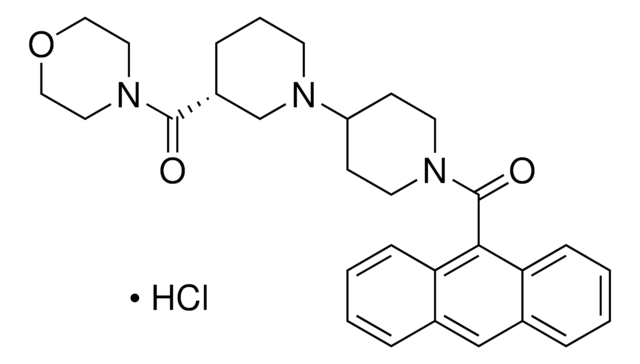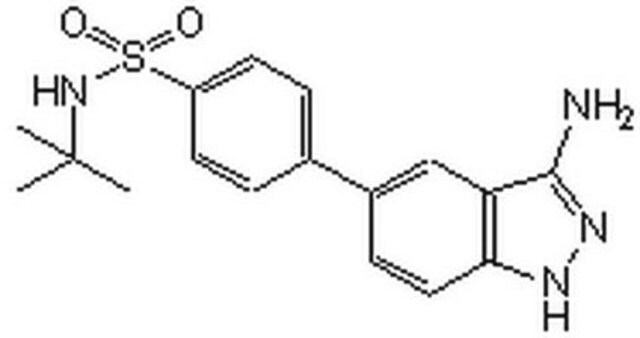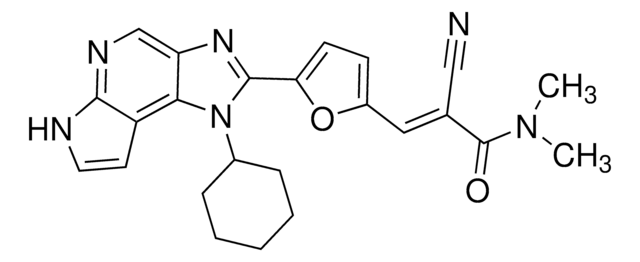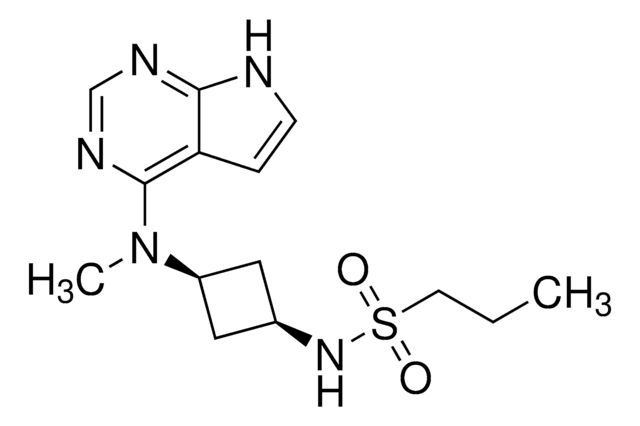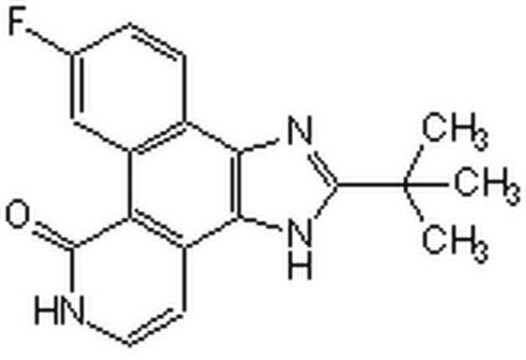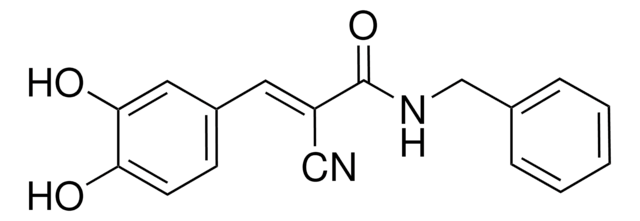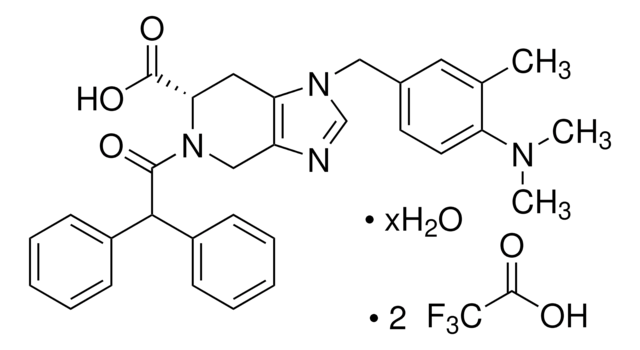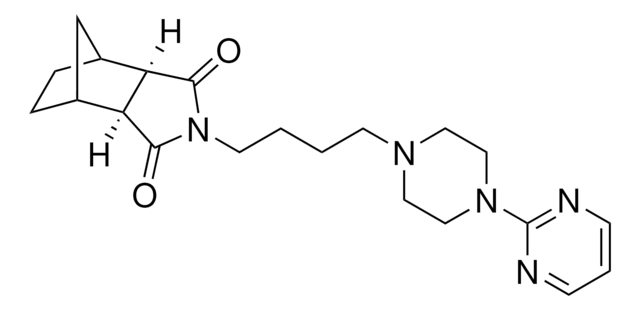420132
JAK2 Inhibitor II
The JAK2 Inhibitor II, also referenced under CAS 1837-91-8, controls the biological activity of JAK2. This small molecule/inhibitor is primarily used for Phosphorylation & Dephosphorylation applications.
Synonym(s):
JAK2 Inhibitor II, 1,2,3,4,5,6-Hexabromocyclohexane
About This Item
Recommended Products
Quality Level
Assay
≥97% (GC)
form
solid
manufacturer/tradename
Calbiochem®
storage condition
OK to freeze
protect from light
color
off-white
solubility
DMSO: 5 mg/mL
shipped in
ambient
storage temp.
2-8°C
SMILES string
BrC1C(C(C(C(C1Br)Br)Br)Br)Br
InChI
1S/C6H6Br6/c7-1-2(8)4(10)6(12)5(11)3(1)9/h1-6H
InChI key
QFQZKISCBJKVHI-UHFFFAOYSA-N
General description
Biochem/physiol Actions
JAK2 autophosphorylation
Packaging
Warning
Reconstitution
Other Notes
Legal Information
Signal Word
Warning
Hazard Statements
Precautionary Statements
Hazard Classifications
Acute Tox. 4 Oral - Eye Irrit. 2
Storage Class Code
11 - Combustible Solids
WGK
WGK 3
Flash Point(F)
Not applicable
Flash Point(C)
Not applicable
Certificates of Analysis (COA)
Search for Certificates of Analysis (COA) by entering the products Lot/Batch Number. Lot and Batch Numbers can be found on a product’s label following the words ‘Lot’ or ‘Batch’.
Already Own This Product?
Find documentation for the products that you have recently purchased in the Document Library.
Our team of scientists has experience in all areas of research including Life Science, Material Science, Chemical Synthesis, Chromatography, Analytical and many others.
Contact Technical Service